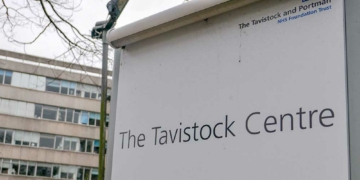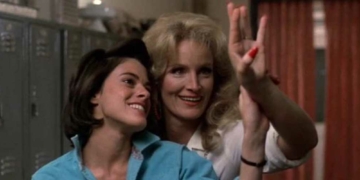A magistrate from Kent who was removed from office following his refusal to sign adoption papers in the case of a gay male couple has had his appeal dismissed by a unanimous Court of Appeal on Friday 26th February, writes legal commentator Dennis Kavanagh.
Richard Page, a family panel magistrate in the Central Kent area gave a number of print and television interviews in which he said heterosexual adoption was always preferable and that his Christian faith should come into the question of what was in the best interests of any child, (despite gay adoption having been made lawful in Adoption and Children Act 2002). His appeal was backed by religious lobby group, “Christian Concern”.
In a comprehensive ruling in the case Lord Justice Underhill said of the subsequent media appearances by Mr. Page that “It plainly brings the magistracy into disrepute if a magistrate says publicly that they will judge cases according to their own preconceptions rather than according to the law and the evidence.” Mr. Page argued that he had been victimised because of his strongly held Christian beliefs and that his rights under both the Equality and Human Rights Acts had been breached. In a powerfully worded concurring judgment, Lord Justice Peter Jackson said bluntly of such claims, “the Appellant is not a victim”, adding that a previous disciplinary panel had been right to describe Mr. Page’s reliance on Christian teachings over the evidence in a case as betraying “a remarkable lack of judgment”. The Court of Appeal also ordered Mr. Page to pay costs of £13,660.80 to the Lord Chancellor.
Responding to the judgment, Andrea Williams, chief executive of the “Christian Legal Centre” said that “This ruling provides a green light for employers to punish Christian employees who do not fall in line with and unquestionably support LGBT ideology”. On close inspection through, this case was less about the LGBT positions held by such interests group and more about Mr. Page’s relationship with the media.
The basis for the Court of Appeal judgment stems not from the original July 2014 adoption decision, but from the subsequent publicity campaign waged by Mr. Page in which he claimed discrimination against him on the basis of his Christian beliefs. Mr. Page’s behaviour around the adoption decision itself resulted in a formal reprimand from the Lord Chancellor in December 2014 and a direction that the Magistrate undertake further training, which he did. There matters may (and arguably should) have rested, but in January 2015 Mr. Page gave interviews to the Telegraph and Mail on the subject before going onto appear on BBC News in March 2015 and Good Morning Britain thereafter. In the BBC interview, Mr. Page said “My responsibility as a magistrate, as I saw it, was to do what I considered best for the child and my feeling was therefore that it would be better if it was a man and a woman who were the adopted parents.”
His decision to do so ran directly contrary general media guidance for judges and magistrates and to clear 2012 guidance from the clerk to the Kent Justices that magistrates “should not communicate with the media and …avoid public comments either on general issues or on particular cases which might cast doubt on their impartiality. Magistrates were advised that if, nevertheless, they were considering speaking to the press they should consult the judicial press office first.” Following his reprimand in 2014, Mr Page received further guidance from the Chair of the Central Kent Magistrates Bench in February 2015 regarding approaching the media but unperturbed, he went onto speak to the BBC without first consulting the judicial press office as recommended.
By early 2015, a case which could have been quietly dealt with some months earlier had now become something of a one-sided media battle between Mr. Page and the supposed “anti Christian” campaign against him that never was. Judges, of course, must observe strict rules relating to the media to preserve their reputation of impartiality and maintain confidence in the system of justice. In turning a complaint in a campaign, Mr. Page and his backers have essentially pitted themselves directly against the ancient and generally accepted principle that a Judge must maintain not only impartiality, but the appearance of impartiality.
The Court comprehensively rejected Mr. Page’s attempts to portray himself as “singled out for his Christian belief” describing the submission as “a patent distortion of the facts” which demonstrated “a profound misunderstanding of the responsibilities of a judge as a public servant”. So while much of the commentary around the case centres on a supposed “religious freedom” debate, the reality of this case is much more simple, Judges (and magistrates) don’t do interviews.
Dennis Kavanagh is a legal commentator and barrister (non-practising).
























Comments
No comments yet, be the first to leave a comment.